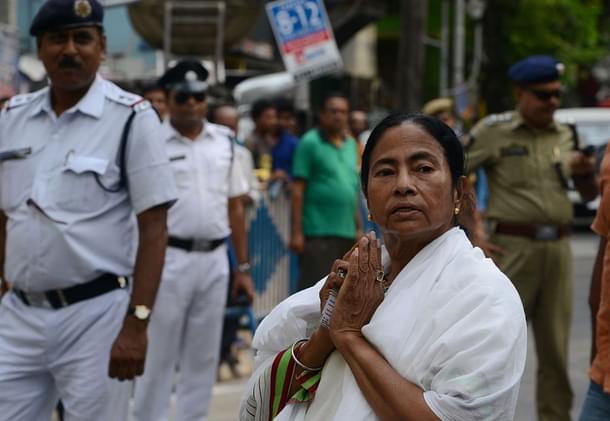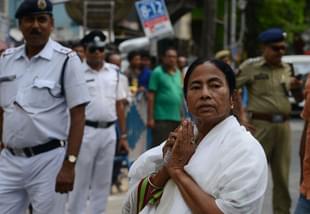Economy
Banerjee’s Tantrums Are Fake: Note Ban Sets Stage For Faster GST Rollout, Not Slower
R Jagannathan
Dec 05, 2016, 11:50 AM | Updated 11:50 AM IST
Save & read from anywhere!
Bookmark stories for easy access on any device or the Swarajya app.


Ever since demonetisation upset many applecarts, West Bengal Chief Minister Mamata Banerjee has been throwing tantrums. After pledging to “remove Narendra Modi from politics”, she has now gotten her normally suave Finance Minister, Amit Mitra, a former secretary-general of Federation of Indian Chambers of Commerce and Industry, to try and spike the guns of the Finance Minister by delaying the goods and services tax (GST).
The constitutional amendment passed earlier this year mandates that GST should come into force latest by September 2017. The official deadline is April 2017.
Mitra spoke to TV channels the other day claiming that the country could not afford two disruptive ideas coming up one after the other. Demonetisation was one, and GST would be the second. He is quoted by The Indian Express as saying that demonetisation was a “tectonic” hit, and that he was “deeply concerned about the timing of the GST. People are talking about a recession. A 2 per cent fall in GDP is serious, (so) can GST happen?” He urged the government to redo its arithmetic on GST.
This writer has always been ambivalent about GST for two reasons: one, it impacts the federal structure more than any other piece of legislation; and two, even for the Bharatiya Janata Party, GST will be hugely traumatic since it will impact the party’s core base of voters among traders and small businesses, not to speak of middle class service professionals.
That Narendra Modi has still decided to go ahead with the idea marks him out as a politician willing to take huge risks with his own voter base – and that is the true mark of a leader.
However, Mitra is surely off the mark when he suggests that the country cannot handle two big bangs in a row.
The fact is demonetisation sets the stage for a less traumatic shift to GST precisely because it has already forced traders and small businesses to start connecting with the formal finance economy. GST will force every small goods or services provider to become computer savvy, file returns electronically, and reduce the use of cash in his business. Everything would have had to be done legitimately, and there is little scope for indirect tax evasion. With demonetisation, everyone, from small kirana stores to vendors, has begun the shift to cheque and credit card payments, providing the perfect setting for a migration to IT-driven GST compliance.
I have been a pessimist on GST, given the scope for greater centre-state tensions. In the past, I have even advocated a postponement of implementation to 2019, so that it does not become an election issue.
But the behavioural shift has already begun taking place due to demonetisation. So, Mitra is wrong to assume that GST will be another huge disrupter. GST will now be less disruptive as the changes are already underway.
This means the April deadline for implementing GST would be ideal; maybe June would be a more practical date. If Mitra wants to avoid the second disruption, he should be fast-forwarding GST, not seeking to delay it all the way to September.
There are, however, two areas where the centre can be more forthcoming.
One, the government can make concessions on dual control of goods and services administration, especially in services. This is the key to breaking the deadlock.
Two, a more flexible rate structure, where states have greater leeway to impose higher rates on some products and services, would also be useful in the initial stages.
Some stooping to conquer will help Finance Minister Arun Jaitley navigate the sharks being let loose by Mamata Banerjee and other opposition governments in the turgid waters of demonetisation.
Jagannathan is former Editorial Director, Swarajya. He tweets at @TheJaggi.





